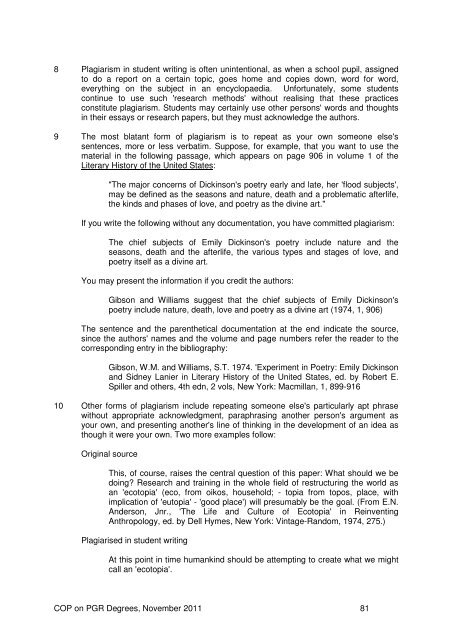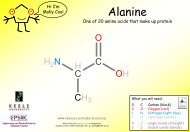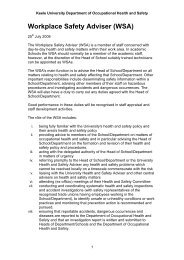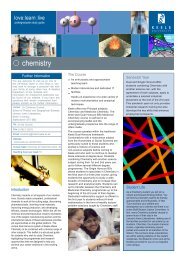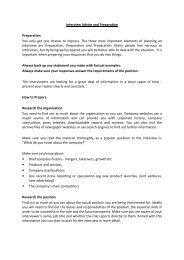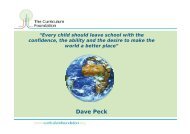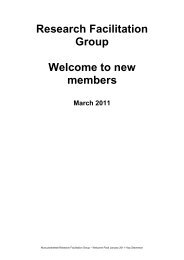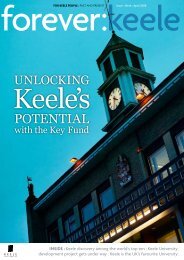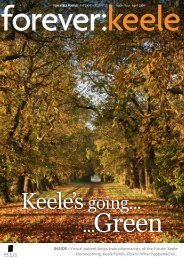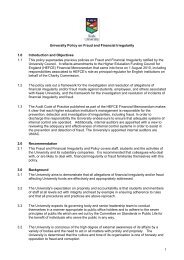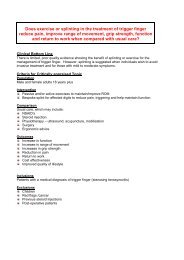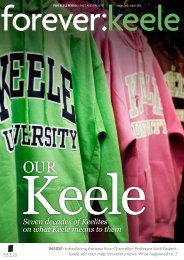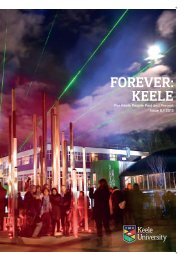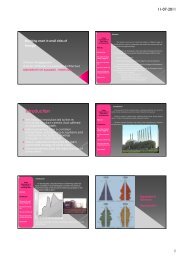keele university code of practice on postgraduate research degrees
keele university code of practice on postgraduate research degrees
keele university code of practice on postgraduate research degrees
Create successful ePaper yourself
Turn your PDF publications into a flip-book with our unique Google optimized e-Paper software.
8 Plagiarism in student writing is <str<strong>on</strong>g>of</str<strong>on</strong>g>ten unintenti<strong>on</strong>al, as when a school pupil, assigned<br />
to do a report <strong>on</strong> a certain topic, goes home and copies down, word for word,<br />
everything <strong>on</strong> the subject in an encyclopaedia. Unfortunately, some students<br />
c<strong>on</strong>tinue to use such '<strong>research</strong> methods' without realising that these <str<strong>on</strong>g>practice</str<strong>on</strong>g>s<br />
c<strong>on</strong>stitute plagiarism. Students may certainly use other pers<strong>on</strong>s' words and thoughts<br />
in their essays or <strong>research</strong> papers, but they must acknowledge the authors.<br />
9 The most blatant form <str<strong>on</strong>g>of</str<strong>on</strong>g> plagiarism is to repeat as your own some<strong>on</strong>e else's<br />
sentences, more or less verbatim. Suppose, for example, that you want to use the<br />
material in the following passage, which appears <strong>on</strong> page 906 in volume 1 <str<strong>on</strong>g>of</str<strong>on</strong>g> the<br />
Literary History <str<strong>on</strong>g>of</str<strong>on</strong>g> the United States:<br />
"The major c<strong>on</strong>cerns <str<strong>on</strong>g>of</str<strong>on</strong>g> Dickins<strong>on</strong>'s poetry early and late, her 'flood subjects',<br />
may be defined as the seas<strong>on</strong>s and nature, death and a problematic afterlife,<br />
the kinds and phases <str<strong>on</strong>g>of</str<strong>on</strong>g> love, and poetry as the divine art."<br />
If you write the following without any documentati<strong>on</strong>, you have committed plagiarism:<br />
The chief subjects <str<strong>on</strong>g>of</str<strong>on</strong>g> Emily Dickins<strong>on</strong>'s poetry include nature and the<br />
seas<strong>on</strong>s, death and the afterlife, the various types and stages <str<strong>on</strong>g>of</str<strong>on</strong>g> love, and<br />
poetry itself as a divine art.<br />
You may present the informati<strong>on</strong> if you credit the authors:<br />
Gibs<strong>on</strong> and Williams suggest that the chief subjects <str<strong>on</strong>g>of</str<strong>on</strong>g> Emily Dickins<strong>on</strong>'s<br />
poetry include nature, death, love and poetry as a divine art (1974, 1, 906)<br />
The sentence and the parenthetical documentati<strong>on</strong> at the end indicate the source,<br />
since the authors' names and the volume and page numbers refer the reader to the<br />
corresp<strong>on</strong>ding entry in the bibliography:<br />
Gibs<strong>on</strong>, W.M. and Williams, S.T. 1974. 'Experiment in Poetry: Emily Dickins<strong>on</strong><br />
and Sidney Lanier in Literary History <str<strong>on</strong>g>of</str<strong>on</strong>g> the United States, ed. by Robert E.<br />
Spiller and others, 4th edn, 2 vols, New York: Macmillan, 1, 899-916<br />
10 Other forms <str<strong>on</strong>g>of</str<strong>on</strong>g> plagiarism include repeating some<strong>on</strong>e else's particularly apt phrase<br />
without appropriate acknowledgment, paraphrasing another pers<strong>on</strong>'s argument as<br />
your own, and presenting another's line <str<strong>on</strong>g>of</str<strong>on</strong>g> thinking in the development <str<strong>on</strong>g>of</str<strong>on</strong>g> an idea as<br />
though it were your own. Two more examples follow:<br />
Original source<br />
This, <str<strong>on</strong>g>of</str<strong>on</strong>g> course, raises the central questi<strong>on</strong> <str<strong>on</strong>g>of</str<strong>on</strong>g> this paper: What should we be<br />
doing? Research and training in the whole field <str<strong>on</strong>g>of</str<strong>on</strong>g> restructuring the world as<br />
an 'ecotopia' (eco, from oikos, household; - topia from topos, place, with<br />
implicati<strong>on</strong> <str<strong>on</strong>g>of</str<strong>on</strong>g> 'eutopia' - 'good place') will presumably be the goal. (From E.N.<br />
Anders<strong>on</strong>, Jnr., 'The Life and Culture <str<strong>on</strong>g>of</str<strong>on</strong>g> Ecotopia' in Reinventing<br />
Anthropology, ed. by Dell Hymes, New York: Vintage-Random, 1974, 275.)<br />
Plagiarised in student writing<br />
At this point in time humankind should be attempting to create what we might<br />
call an 'ecotopia'.<br />
COP <strong>on</strong> PGR Degrees, November 2011 81


